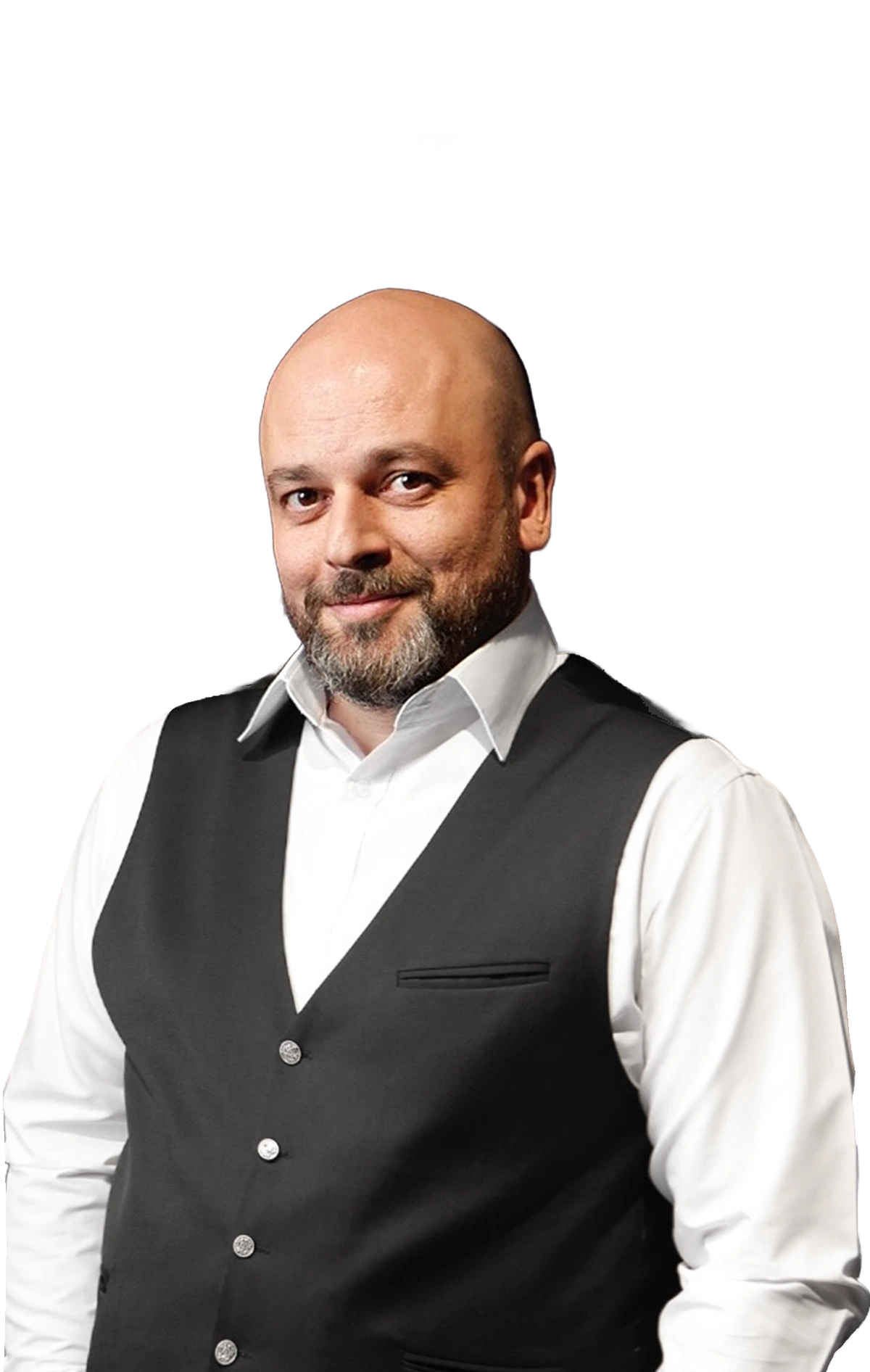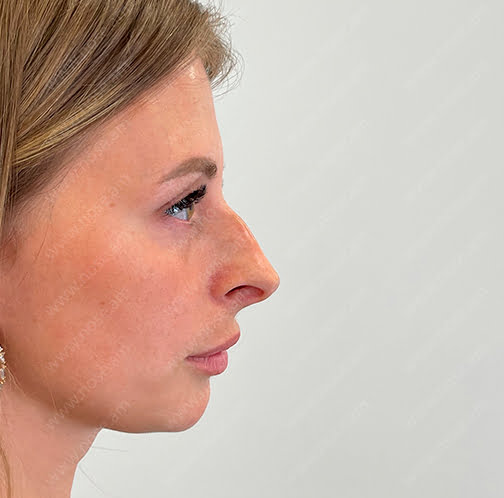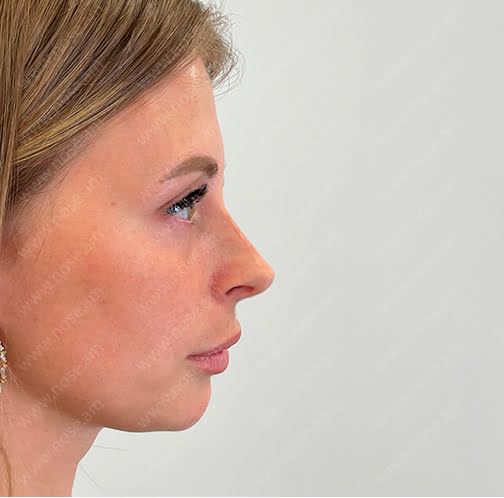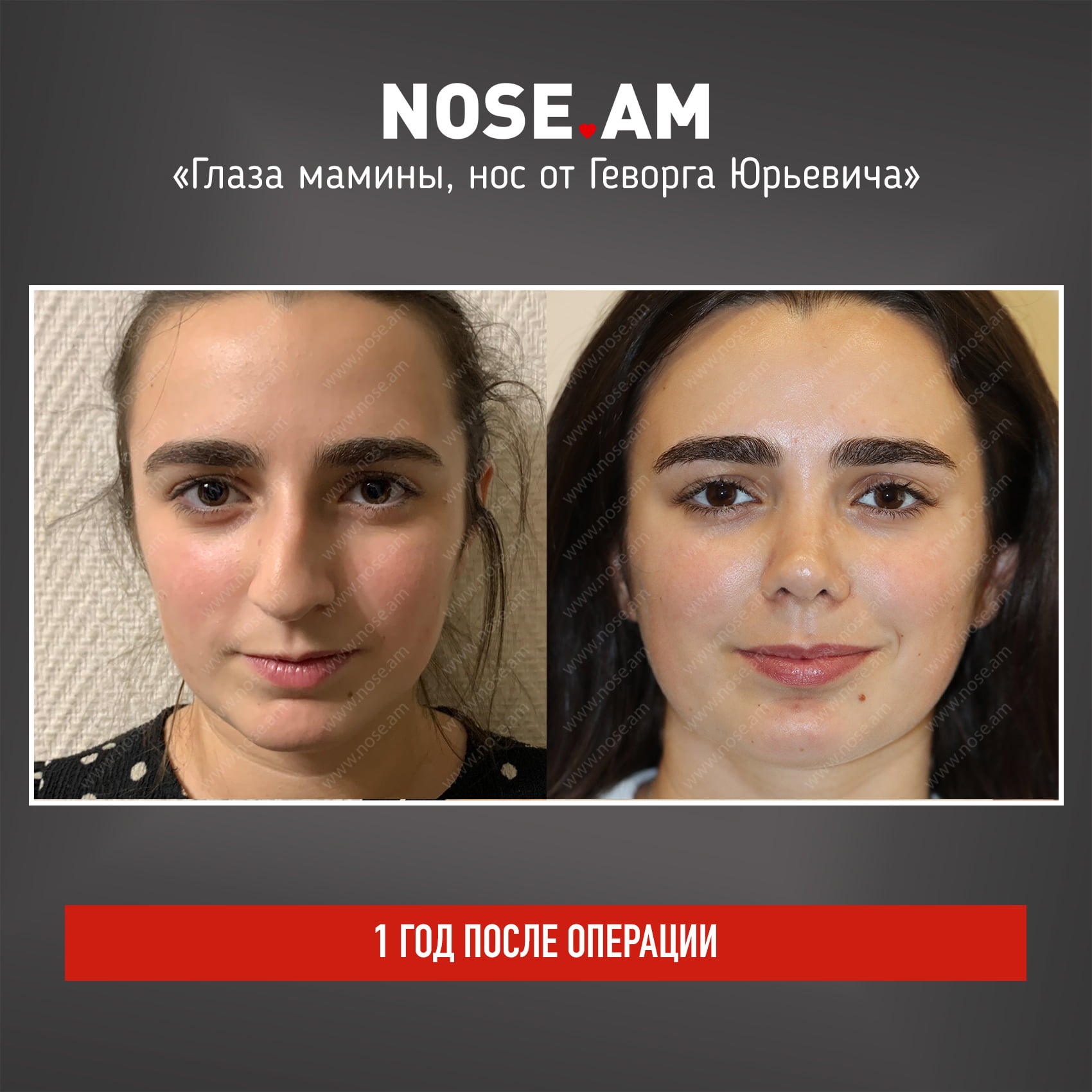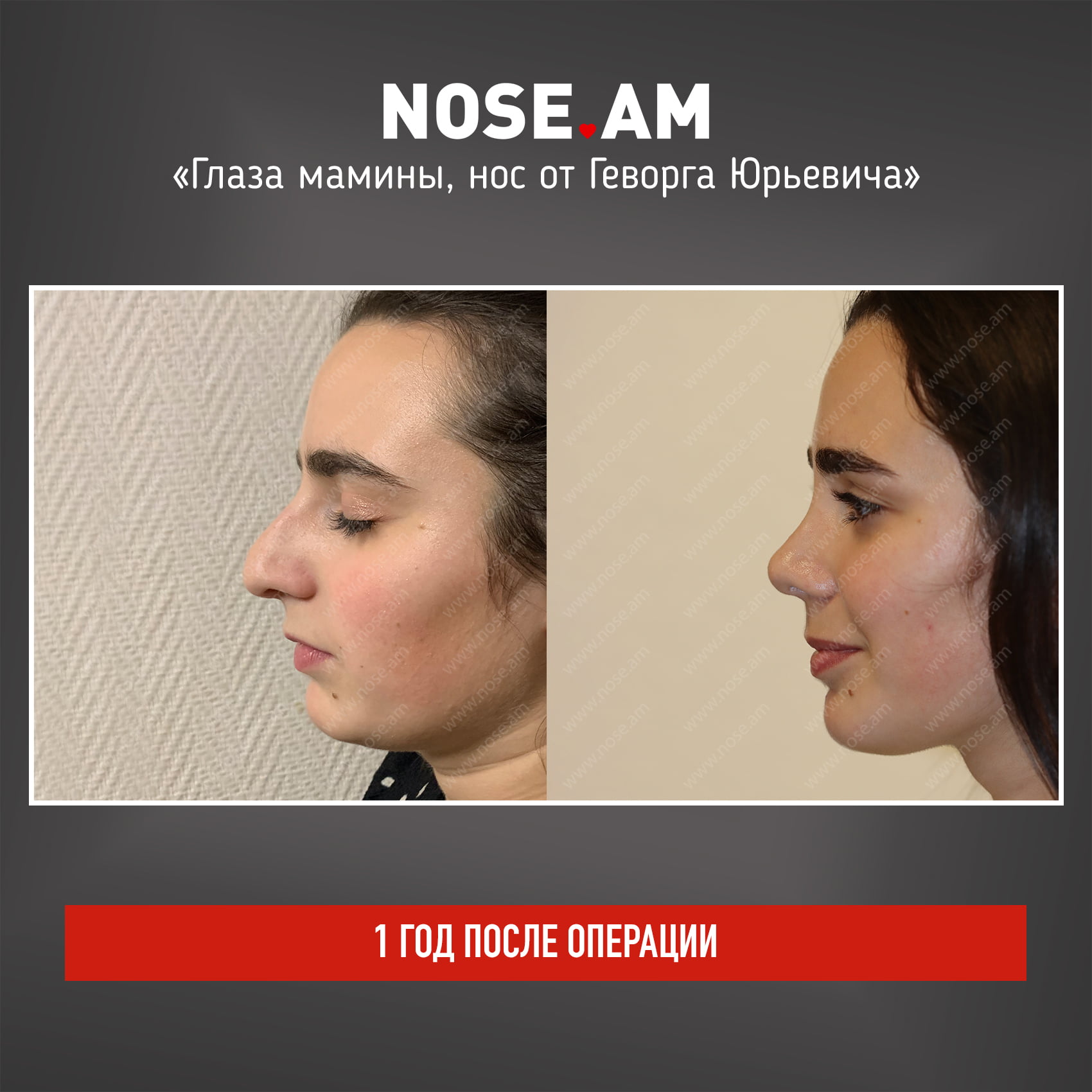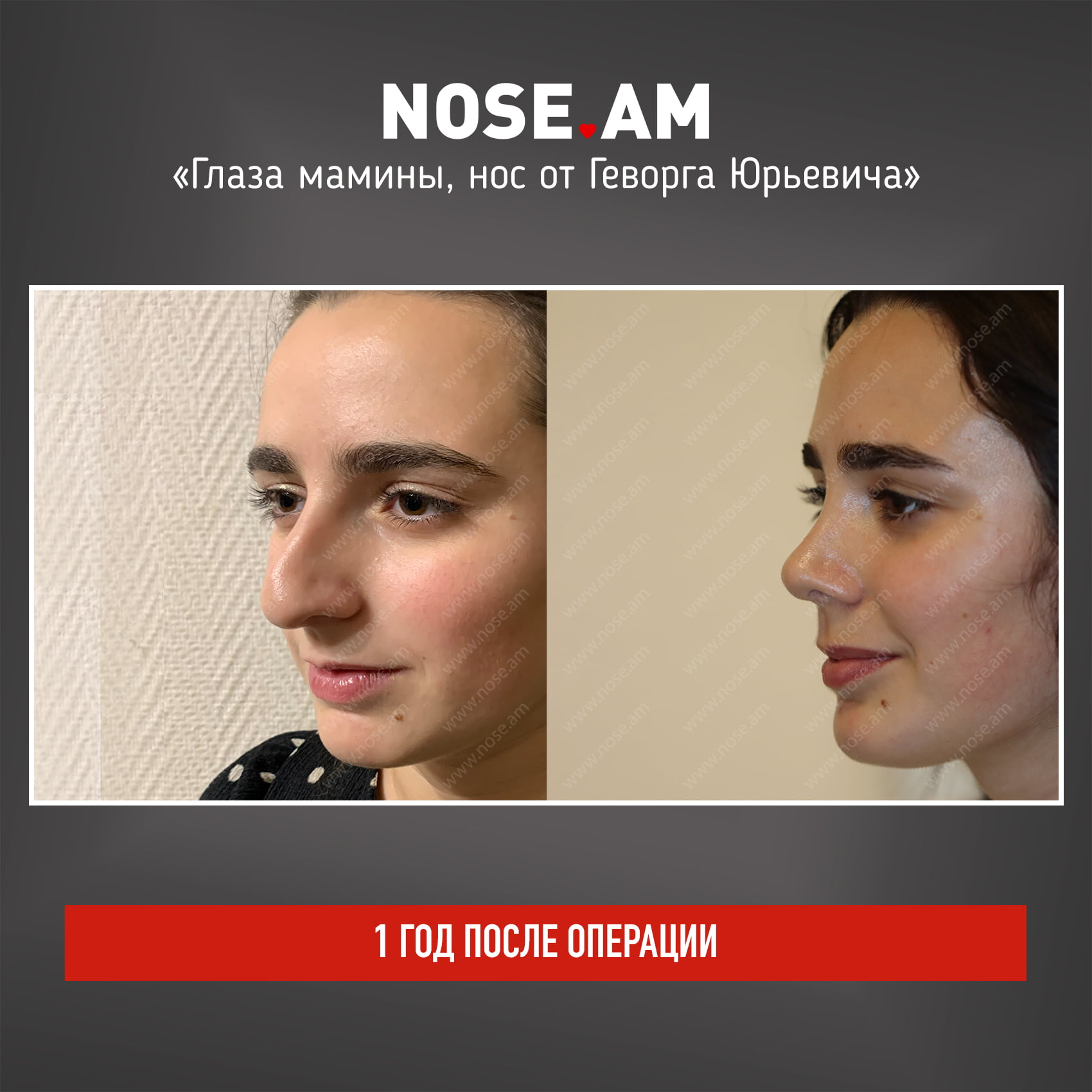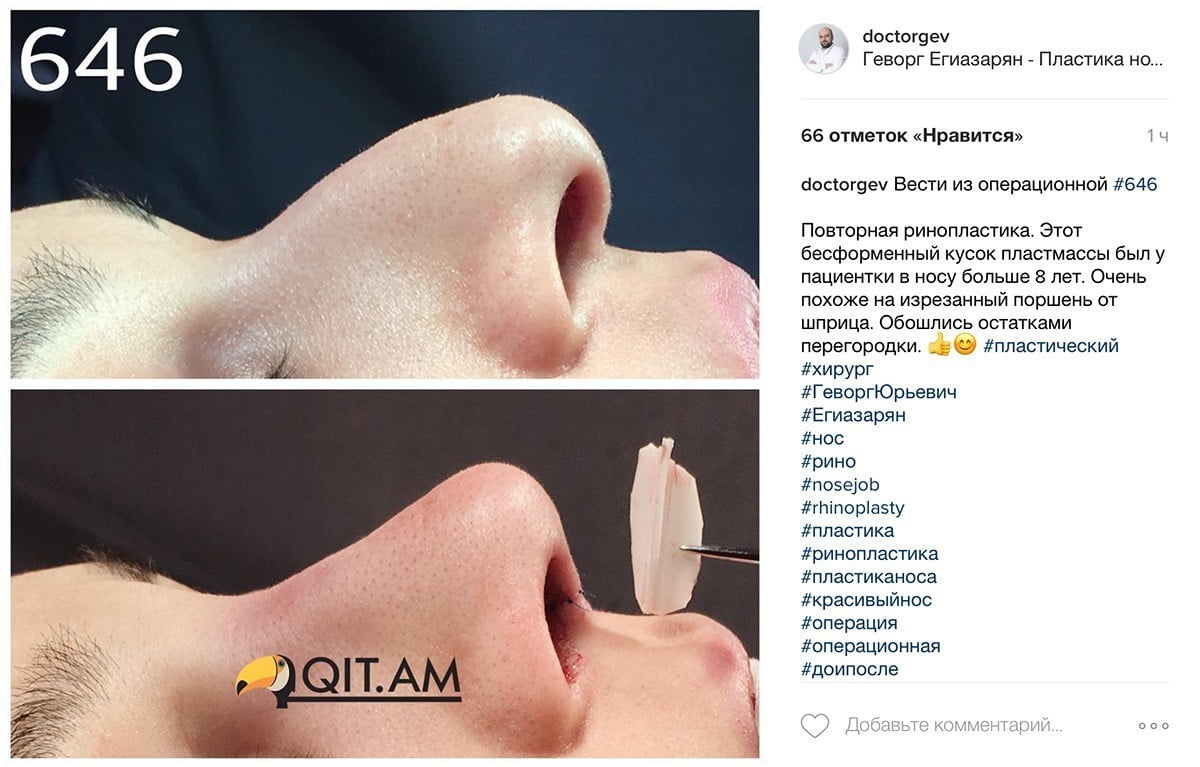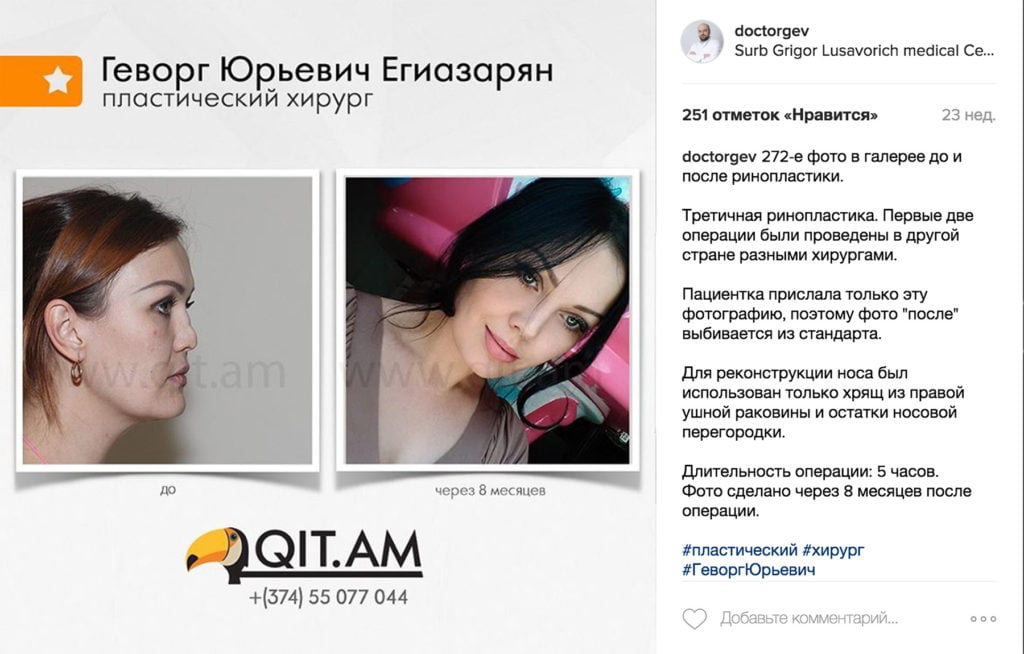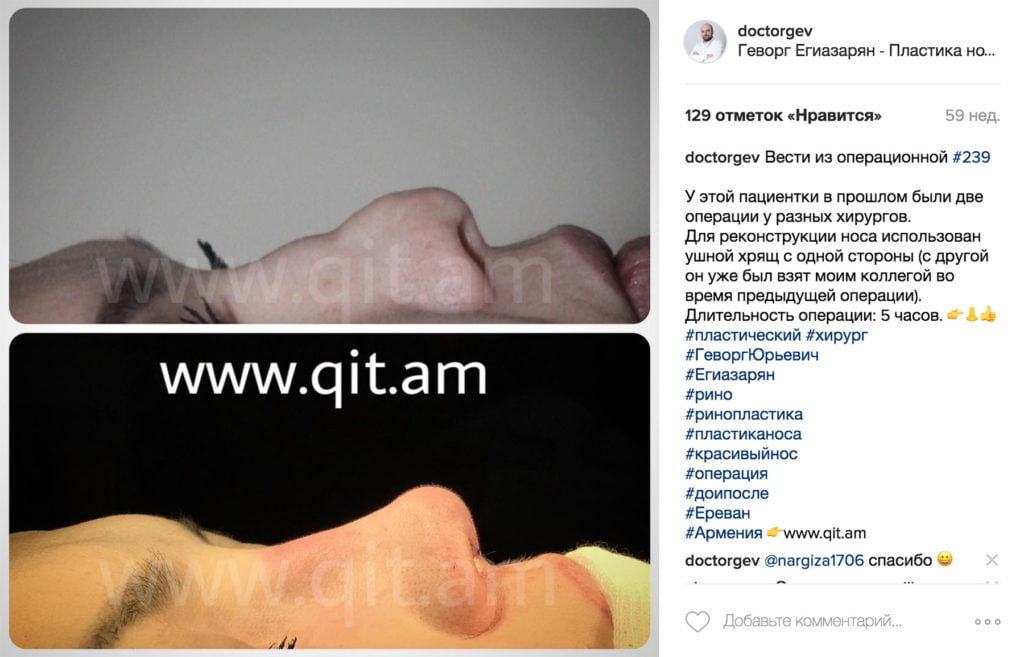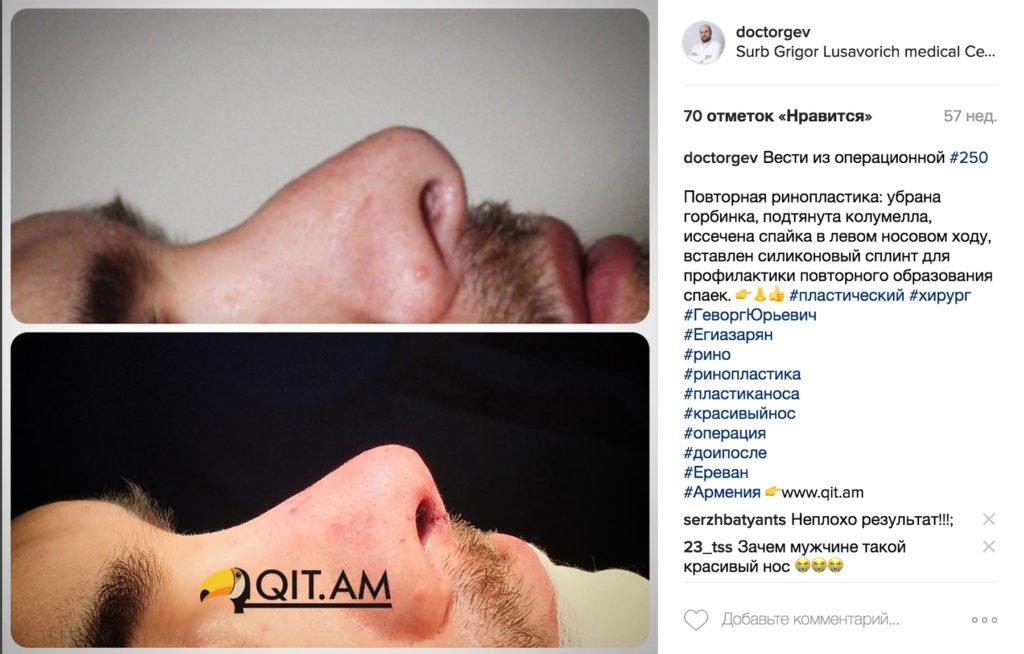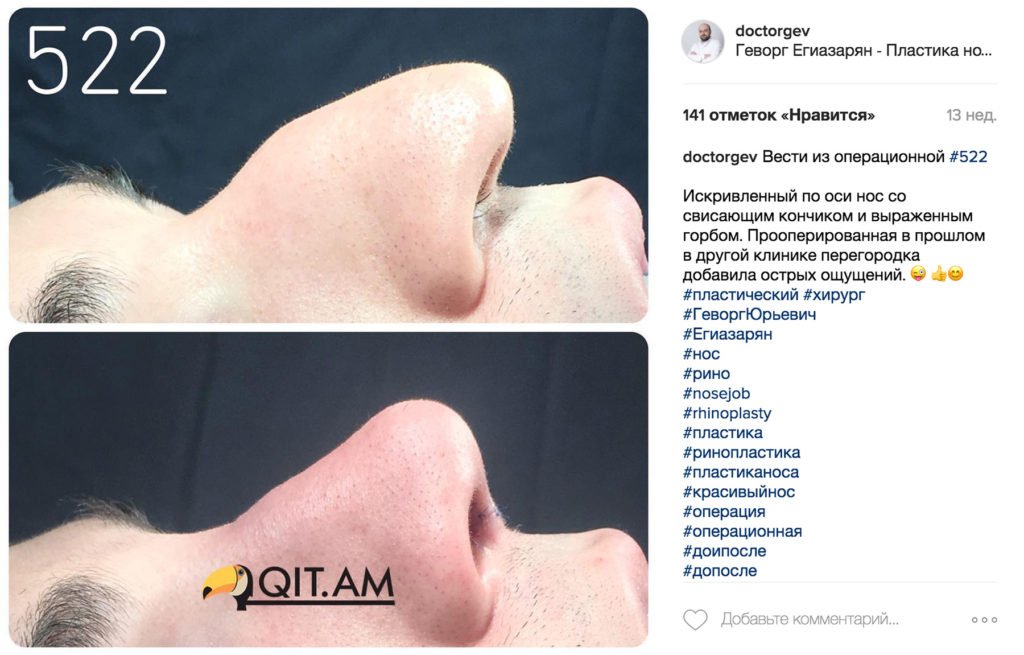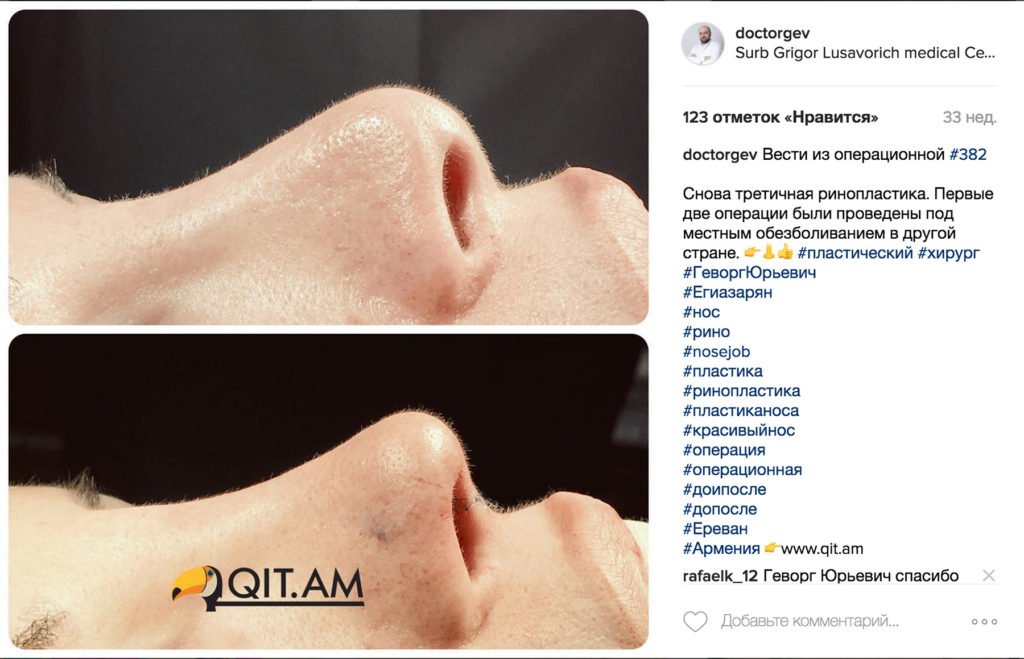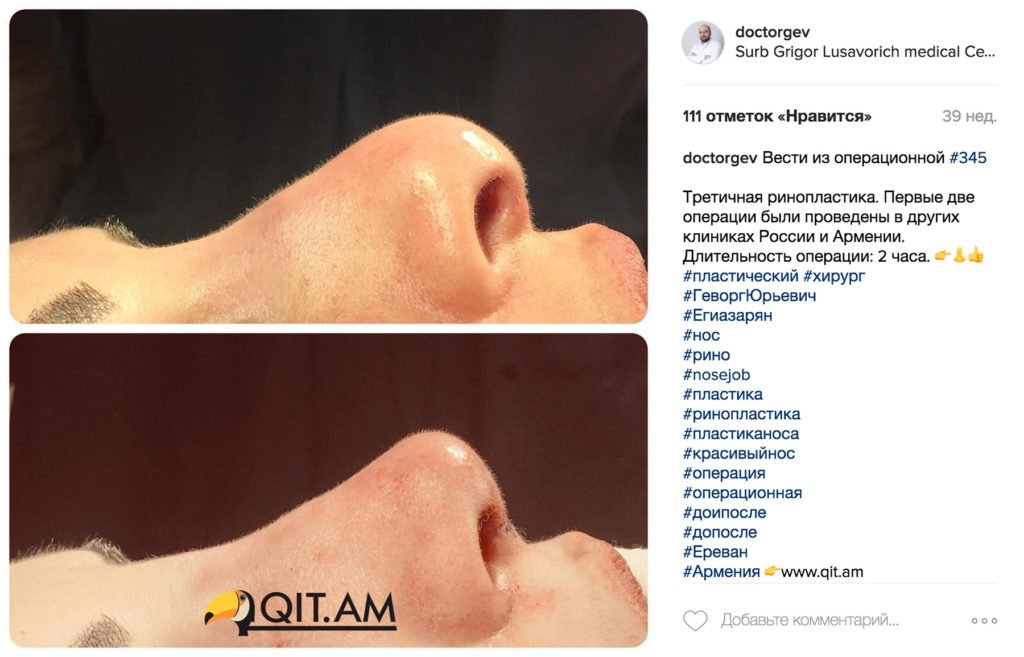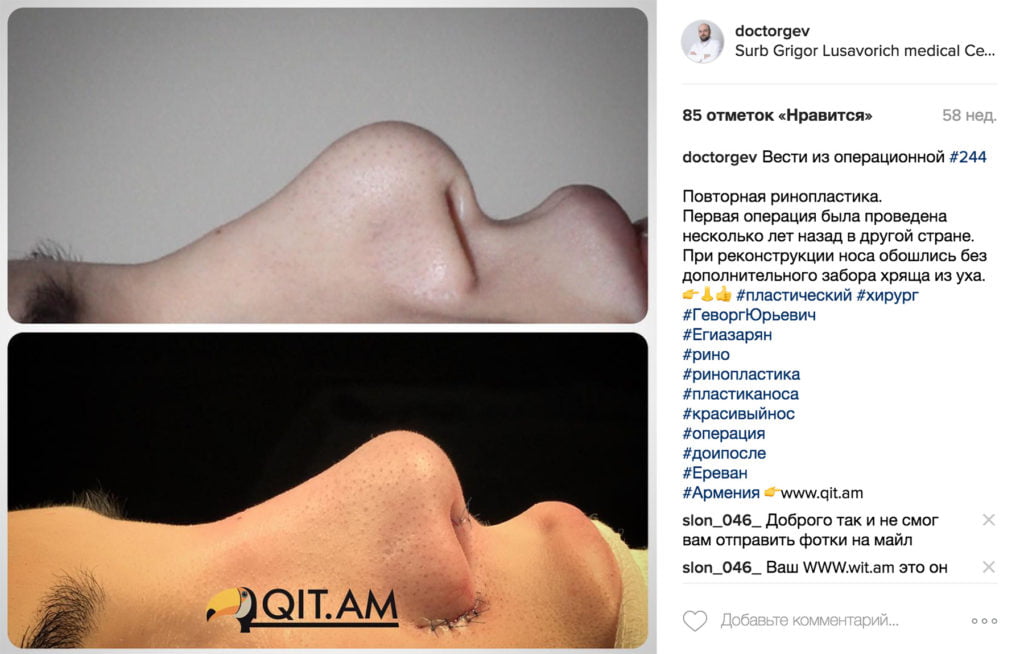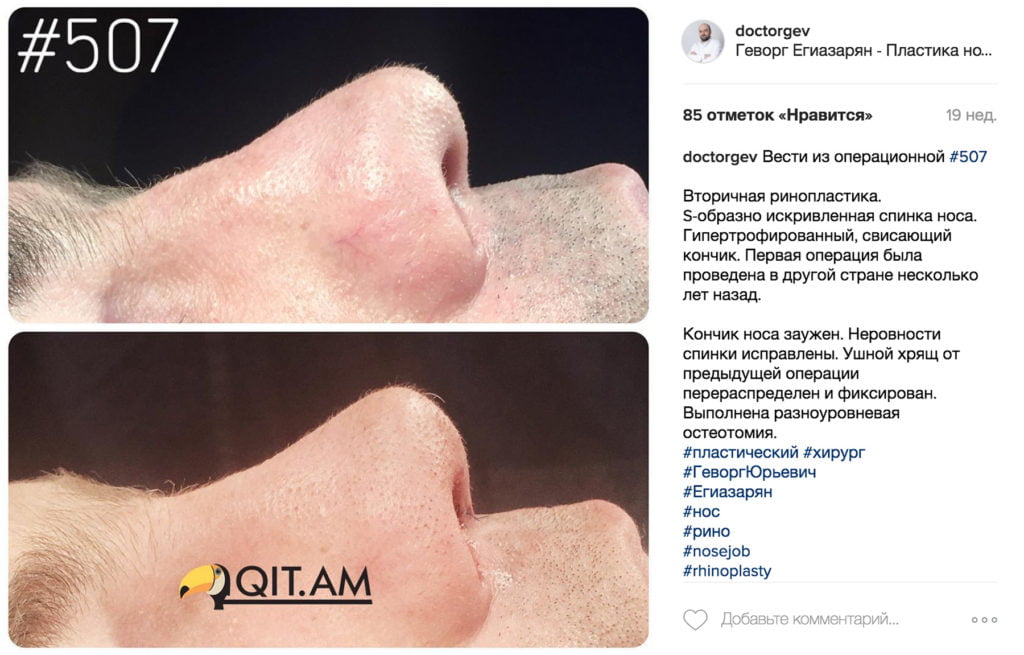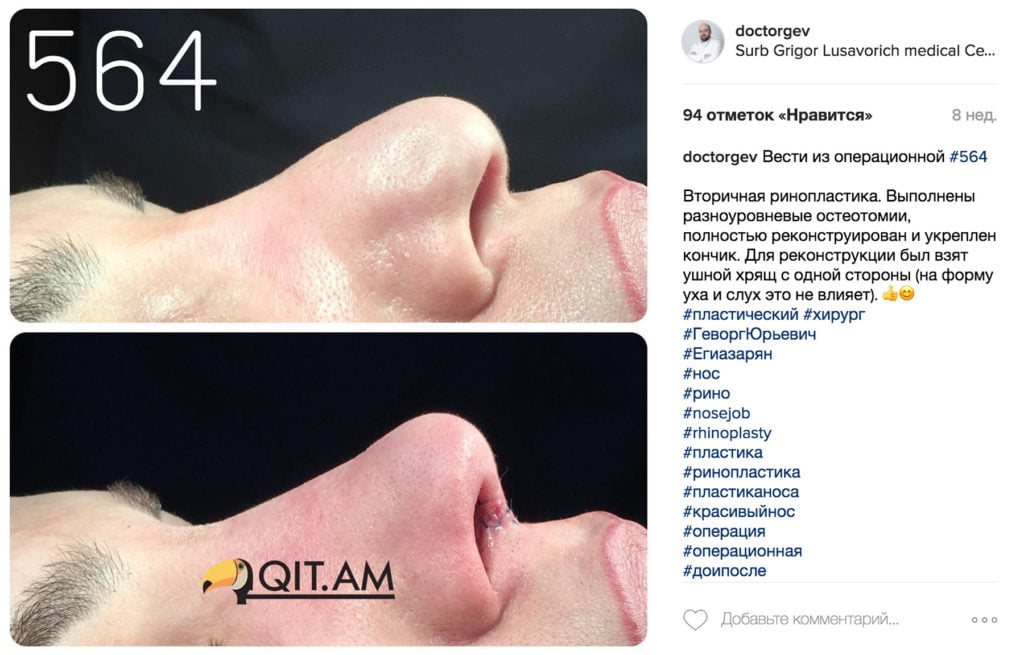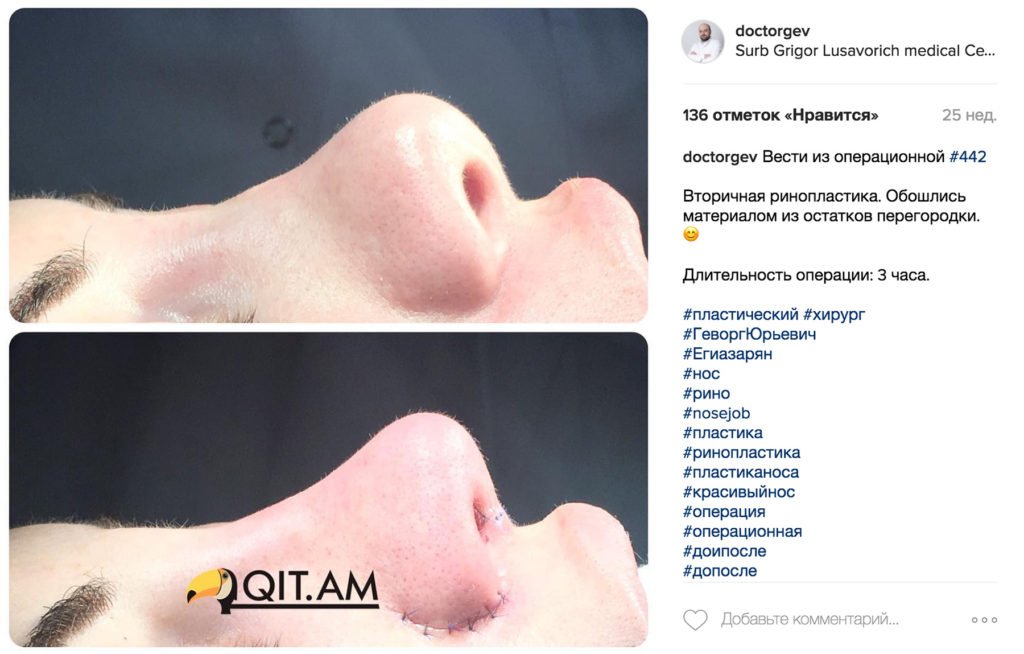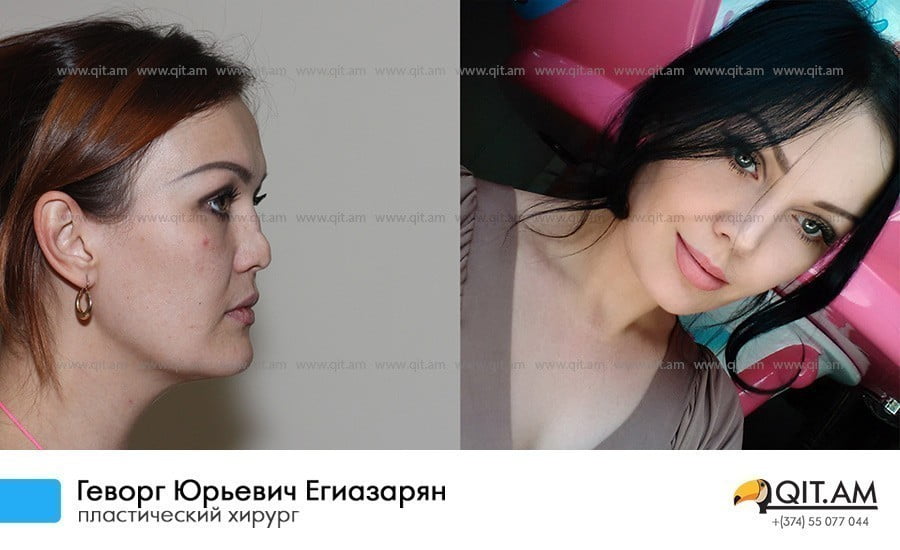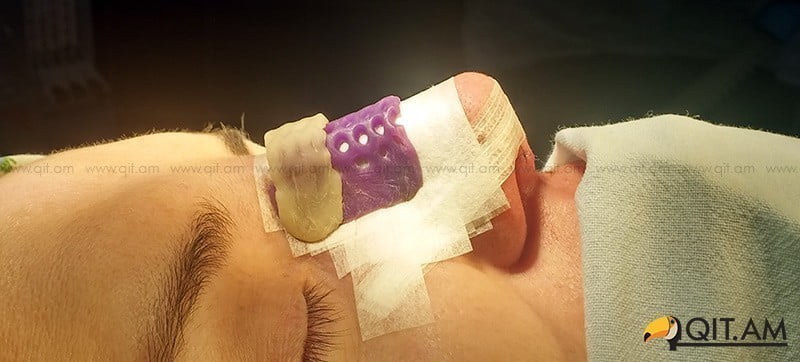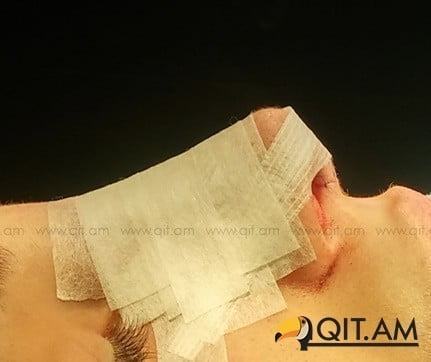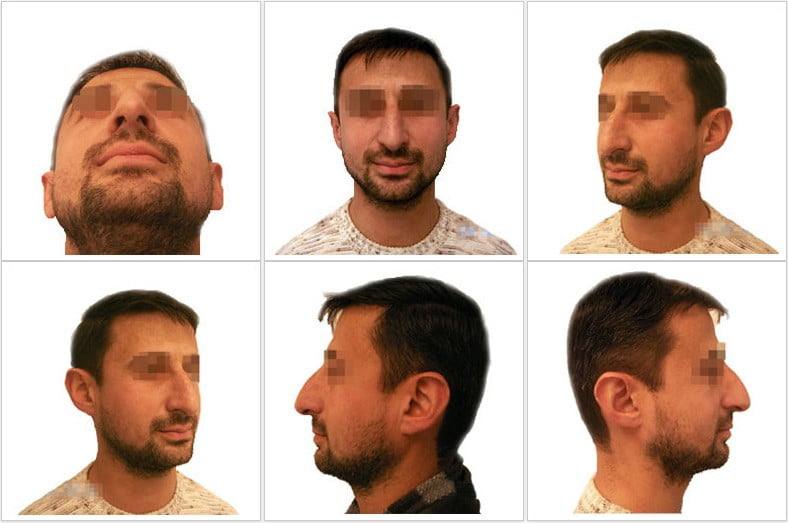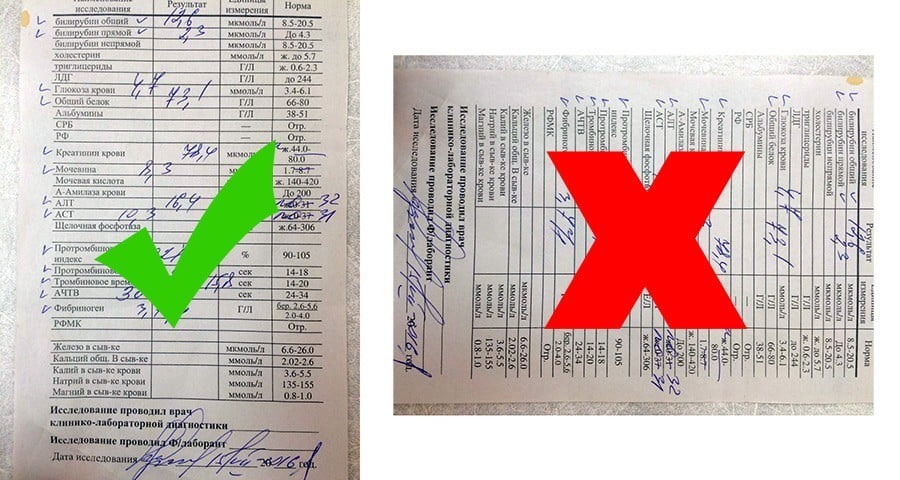Before the operation
- The day before surgery from 8 pm eat nothing, from 12 pm drink nothing.
- You should not eat or drink anything in the morning before the operation.
- Do not wear any makeup before the surgery.
- Remove everything from the big toe nail on your left hand.
- Leave all jewelry at home.
- Do not take any medications (including vitamins, immunostimulants, pills, etc.) a week before surgery!
- Do not smoke 3 days before and within a month after the surgery — smoking slows the healing process and keeps swelling.
- Alcohol is prohibited a week before surgery and for 1 month after!
- Prepare clothes that you will not have to take off or put on «over the head» to avoid accidentally damaging the operated nose.
Postoperative period
After the operation: ice will be put on the eyelid area and replaced by a new one every 20-30 minutes to minimize bruising and swelling (5 times in total). The patient stays in the clinic for one day and is discharged the next day.
Nutrition and post-surgery regimen
- It is allowed to drink not earlier than one hour after the operation, at first little by little and in small sips.
- Three to four hours after surgery you can have light, soft and not hot food.
- Hot liquids and foods should be avoided for the first week after surgery.
- You should drink plenty of fluids. The amount of fluids you drink should be at least 2 liters per day.
- You should remain in bed only for the first day after surgery. The next day it is canceled.
- Sleep only lying on your back for 2 weeks.
- An elevated position of the head will minimize swelling of the face.
Detailed instructions on what you can and cannot do after surgery. A must-read after discharge!
For the next two weeks, imagine yourself as an English queen: do all movements slowly, calmly with dignity, with your nose looking up. Minimize physical exertion and sudden movements.
Phone, book, or tablet — all with your nose looking up. When you put your nose down, gravity causes swelling to build up in the tissues of your nose. Try to keep your nose up all the times if it is possible.
No more bed rest as of today. For the next two weeks you will sleep only on your back with your head elevated.
Your body must not be dehydrated in order to restore proper mucous membrane function. At least 2 liters of regular water should be drunk every day. Carbonated juices and mineral water are prohibited for a month. To make it easier to determine the amount of water you drink, fill up a container of water with a capacity of 2 liters and put it in a prominent place.
You can eat anything you like and in large quantities — your body needs the strength and energy for a quick recovery. Note that the food should not be hot, as well as salty and sweet. Salty and sweet foods retain fluid in the body and do not allow the swelling that has already formed to go down quickly.
Over the next 1-2 weeks, your temperature will be elevated. Usually it will be higher in the evenings and a little lower in the mornings. This is a normal body response to trauma. You don’t need to do anything up to 38 degrees. If the temperature rises above 38 degrees, you drink any antipyretic (such as aspirin or paracetamol) and the temperature will drop.
There is usually no pain after surgery. However, if you have a very low pain threshold, there is no need to be suprehero and endure the pain. Cataphast (powder) — stir it in half a glass of warm water and drink it — it relieves pain for 4-6 hours. In a day you can take no more than 3 sachets.
Bandage under the nose, which you were renewed before discharge, after coming home, take it off. The next one to two weeks from the nose will leak mucus with blood. Do not be alarmed — this is normal. Sterile gauze tissues gently blot the nose so as not to damage the stitches.
At home, after discharge from the clinic, you use two pills — Zinnate and Fluconazole. This is an antibiotic and an antifungal.
- You take Augmentin (250 mg/125 mg) 1 tablet 3 times a day for 5 days.
- Fluconazole (150mg) you drink so you don’t have bowel problems. Tonight you take one capsule. Five days later, after the last antibiotic pill, take another capsule. No matter when you eat.
Starting tomorrow, two additional items are added to today’s medications: Peroxide cleansing and Lyoton gel.
- The peroxide cleanse is done once a day, in the morning. You take 3% hydrogen peroxide and an ear wand. You dip the stick into a jar of peroxide for half a minute (so that the absorbent cotton had time to soak in the peroxide) and very quickly (just 2-3 seconds) cleanse the stitches from dried blood. Do not treat the skin with peroxide for a long time — you will get a chemical burn. If after cleaning with peroxide you notice swelling and redness — do not use peroxide and chopsticks again. When you come back in a week for a dressing, we will clean everything ourselves.
- Lyoton 1000 gel (used only if you see bruises) works for 12 hours, so we use it in the morning at 10 and in the evening at 10. We apply a thin layer only on bruises. Careful not to get the gel in the eyes (otherwise for about a month you will have a vampire bloodshot view). Gel dries on the skin in the form of a shiny film with a yellowish cast. Before the next application of the gel rinse the film with a cotton pad soaked in warm water and squeezed, and then be sure to dry the skin. The gel is most effective on clean and dry skin. Use the gel until the bruises completely disappear.
Exactly one week after surgery, at 9:30 come to the dressing. It takes 5-10 minutes, after which you can go anywhere and on anything you want.
After bandaging a week after surgery:
- Do not touch your nose for 24 hours to avoid introducing an infection through the newly removed stitches.
- You can touch your nose, bathe, and wash the day after the dressing.
- Bathe quickly and without very hot water. You should not steam your nose in the next month after surgery, as most of the swelling subsides in the first month after surgery.
- Inside the nose, on the septum, we purposely leave a few stitches that are absolutely safe and are not felt by the patient (except when the patient does not listen to the recommendations of his doctor and continues to pick his nose with the help of chopsticks, napkins or other improvised means). All stitches used inside the nose are resorbable. Time of resorption: 3-6 months. Observe these stitches, touch them, rub them, pull them out, cut them, etc. — FORBIDDEN!
If you properly care for your nose from the first days after surgery, the postoperative period, which lasts a year, will pass practically unnoticed.
The day after the dressing start rinsing the nose 2-4 times a day by the drug Aqvalor Aktiv-soft. It contains a solution of sea water. It can be used indefinitely without side effects and addiction.
Nose wash is done in an upright position (sitting or standing). The head should be slightly tilted forward. Make sure that during the rinse your head is not tilted back. Press on the nozzle and hold for a few seconds. Then aspirate out the remaining flushing fluid using the “Pinocchio method”.
“Pinocchio method”
Close the right nostril with the thumb from below with the right hand so that no air can pass through it. Do not press from the side, so as not to deform the tip of the nose, just from below. With the other nostril, slowly and weakly, blow your nose. Do the same on the left side — close the left nostril with the thumb of your left hand and blow it using the “Pinocchio method”.
Slowly and weakly — the main principles of the “Pinocchio method”. Strong and abrupt blowing, as some men do, clearing the nose, for 3-4 meters, is not necessary.
After properly clearing your nose, you should not have fresh traces of blood and even more nasal congestion. This means that you are putting too much effort. Next time, try a few times weaker.
The only proper way to clean your nose for the next 1 year after surgery is with Aqualor and the “Pinocchio method”. Forget all other methods!
Reserve medication
The last drug in the prescriptions is Vibrocil (nasal drops). You should use it only if you have a stuffy nose. If you are not stuffy, we keep the drug in reserve and use it only if you have a cold or a runny nose. We put it lying down (the package includes a dropper) in each nostril exactly 3 drops 3 times a day for only 1 week. The drug is strong and addictive. It should not be used for a long time!
Special instructions. Vibrocil should not be put on the septum. On the contrary, after putting it into the right nostril, turn your head to the right and raise it slightly so that it spreads over the right side of the nose. Put it in the left nostril — turn your head to the left and slightly upwards.
List of medicines to buy at the pharmacy
- Augmentin, 250 mg/125 mg, 15 tablets
- Fluconazole, 150mg, 2 capsules
- Akvalor Aktiv-soft
- Vibrocil, nasal drops
- Lyoton 1000
In addition, you will need:
- Hydrogen peroxide 3%
- Ear wands
- Sterile gauze wipes, at least 3-4 packs
Hygiene and cosmetics
- A quick shower with not very hot water is possible on the second day after surgery, but the bandage on the nose must remain dry.
- You can wash your hair from day 3, with your head tilted back, like in a barbershop.
- Cosmetics can be used 7 days after surgery.
- Cosmetic procedures (peeling, photorejuvenation, etc.) can be performed at least 6 months after rhinoplasty.
Warnings and restrictions
- Try to protect your nose from different traumas after rhinoplasty. Avoid excessive activity, strain and bending of the body, as this can cause swelling, especially in the first week after the surgery.
- Sports and vigorous exercise can be resumed only after 2 months.
- Exclude hot baths, baths, saunas, do not go to countries with a hot climate for 2 months.
- Do not sunbathe or visit a tanning salon for 2 months.
- Under no circumstances should you take alcohol for a month — it interferes with healing and causes very severe swelling.
- Do not wear glasses for 6 months after rhinoplasty.
- Women are not recommended to get pregnant for 6 months after rhinoplasty.
Important!
Remember that rhinoplasty is one of the most difficult plastic surgery procedures, therefore it is necessary to treat these rules and recommendations seriously before the surgery and in the postoperative period.
Do not self-medicate and do not listen to the advice of relatives, friends or just acquaintances. All actions should be coordinated with the doctor who operated on you!
If you have any questions, you can always contact my assistant. She knows the answers to almost 99% of questions, as they are most often repeated day in and day out. If you are creative and ask some interesting, unique question that the assistant can’t answer, she will easily contact me and I will answer your question. In any case, you will not be left without an answer 🙂
Please don’t text me on Instagram, there are a lot of messages — I might miss it.



